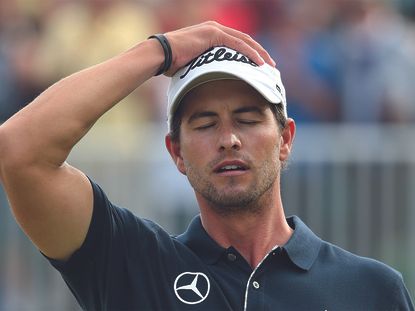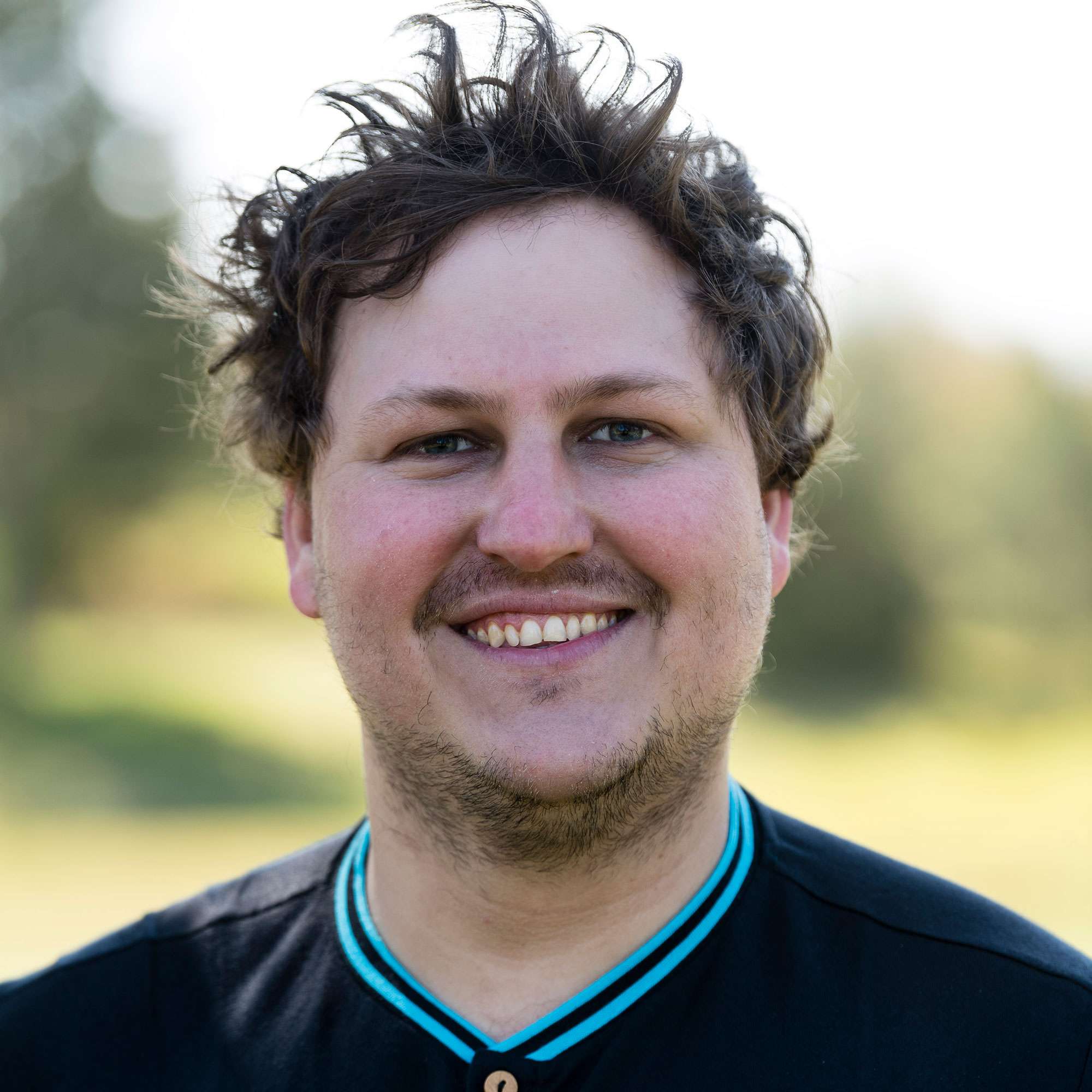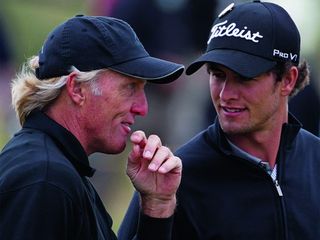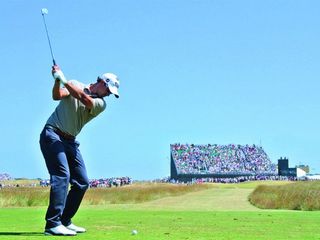Adam Scott: unfinished business


Adam Scott caused a furore when he pulled out of the Olympic games. But, as he tells Robin Barwick, it was Green Jackets and Claret Jugs that inspired him as a youngster, not Gold Medals
Adam Scott: unfinished business
When Adam Scott announced his ‘Rio de Janexit’ in April – that he would forego this summer’s Olympic golf tournament – Australian swimming legend Dawn Fraser went ballistic. “How much money do you want in life?” she demanded on Facebook.
Fraser, 78, worked three jobs during her competitive prime as she clocked up four Olympic gold medals, including three straight 100-metre freestyle triumphs in 1956, 1960 and 1964. Scott, 35, has won 27 professional titles around the world since 2001 and playing golf is the only work he knows. They might come from different sides of the Outback, but nonetheless, Scott’s Olympic decision has nothing to do with money.
He treated Fraser’s comments with contempt, although in an exclusive interview with Golf Monthly, Adelaide-born Scott does offer a carefully considered reprisal: “I try to make my decisions based on what I know are the facts and if I was going to form an opinion about someone else I would get the facts before doing so,” he says.
“I don’t think the fallout has been that bad at all. I knew there would be people who don’t understand my decision but I have been surprised by the amount of support it’s received. It’s the right decision and I think it is only healthy for the debate to be open about where golf fits within the Olympics. The only thing that concerns me is how my decision is seen in Australia.
“The general feeling among golfers is similar to mine I would have to say, but that does not include everyone."
Get the Golf Monthly Newsletter
Subscribe to the Golf Monthly newsletter to stay up to date with all the latest tour news, equipment news, reviews, head-to-heads and buyer’s guides from our team of experienced experts.
Related: Olympic withdrawals podcast
Pinnacle of the sport?
Scott has never concealed his lack of enthusiasm for the concept of pro golfers competing for Olympic gold. As far back as 2012 he told Golf Monthly: “I didn’t grow up watching golf in the Olympics so it is not something I have ever aspired to… Winning an Olympic gold medal in golf is certainly not going to match winning a Major at all. There are athletes in the Olympics who train for four years just for the Olympics because the Olympics represents the pinnacle of achievement for their sport, and I would argue that sports for which the Olympics are not the pinnacle are taking something away from these other athletes.”
That’s before you consider this summer’s concertinaed schedule of tournaments for the players – which Scott describes as a “huge problem” – meaning more time away from families. Scott and wife Marie have a one-year-old daughter, Bo. Then there is the format; 72 holes of individual stroke play when the IGF could have opted for foursomes, four-balls and even mixed teams.
“A pretty weak field, 72 holes and no cut – I’m just not sure how that fits into being the pinnacle of anything,” adds Scott.
While Scott didn’t grow up watching Olympic golf, one of his first golfing memories was aged six, hoping Greg Norman would become the first Australian to win The Masters in 1987. “I just remember Larry Mize chipping in,” he recalls of Mize’s moment of glory, when the golfer brought up in Augusta, who worked on the Masters scoreboards as a kid, chipped in from 140 feet on 11 to clinch the play-off. “I was late for school that morning because of the play-off. That was my first real memory of watching Greg on TV.”
It was also a solitary lesson to a wide-eyed child just how cruel golf can be, and that whenever there is euphoria on one side in sport, there is despair on the other.
In 1996, aged 15, it was an all-nighter watching Norman at Augusta, to see if he would finally claim the Green Jacket that seemed rightfully his. Yet more despair. Norman carried a six-shot lead over Nick Faldo into the final round but slumped to a 78 and lost by five. The defeat didn’t just bring Norman to his knees – Scott was devastated.
“Greg Norman, for sure, was my golfing hero as a kid,” says Scott, who today counts Norman among his close allies. “Everything he did was right by me. He was in contention so much and he was number one for a lot of that time, right around the time I started to get serious about golf. I would be up early every Monday morning in Australia to watch the end of the tournaments in America. I would get up at 5.30, or even 4.30 to watch the end of The Masters.”

Scott would have to wait another 17 years before seeing an Aussie slip his arms into the Green Jacket, taking matters into his own hands in 2013 to defeat Angel Cabrera at the second play-off hole in diminishing light. Remember the roar of “Come on Aussie” from Scott when he birdied the 18th in regulation? No wonder it was so emotional.
Watching Norman lose The Masters and win The Open (in 1986 and 1993), along with Ian Baker-Finch (1991), and watching Wayne Grady and Steve Elkington win the USPGA Championship (1990 and 1995 respectively) – Australians all – were the golfing highlights for a young Scott. Those were the moments that shaped his ambitions. Gold Medals lit up the dreams of a young Dawn Fraser but for Scott it was Major trophies that glistened.
Unfinished business
That is why, when 2011 Open Champion Darren Clarke took the Claret Jug to the Australian PGA Championship that year, Scott would not hold the silver jug when asked to by photographers. “It was not out of superstition,” recalls Scott, “but I believe you need to earn the right to hold the Claret Jug. I would not feel good about picking up the Wanamaker Trophy either, unless it was out on the 18th green on the Sunday of the USPGA Championship.”
And so the classic Open challenge of Royal Troon awaits, and another chance for Scott to become the first Australian to clutch the Claret Jug since Norman at Royal St George’s in 1993.
Of course, Scott should already have felt the delicately engraved rub of the Claret Jug, none more so than in 2012 at Royal Lytham, when an imperious performance for three rounds and 14 holes saw him lead by four with four holes to play. But then a screw fell loose somewhere and all of a sudden Scott lost his equilibrium with the broom-handle putter on Lytham’s quickening greens. An agonising sequence of four dropped shots over the final four holes saw Scott lose his grip on the jug and it slipped into the grateful hands of a bewildered Ernie Els.
At Muirfield 12 months later – and now accompanied by the Green Jacket – Scott again led into the closing nine before he stalled and Phil Mickelson surged (below). At Royal Liverpool in 2014, Scott was World No.1 but got on the wrong side of the draw, played through the worst of the weather in both the first and second rounds and won what Justin Rose called “the other tournament” while McIlroy took the title. “That is just the way it is,” reflected Scott at the time.

Then at St Andrews last year Scott reached the top on The Open’s Sunday leaderboard once again, before succumbing on the uncompromising back nine of the Old Course. Scott finished in a tie for 10th – his worst Open position since 2011. So, a feeling of unfinished business with The Open?
“Absolutely,” says Scott, who after a winless 2015 has sprung back with victories in consecutive weeks in the Honda Classic and WGC-Cadillac Championship at Trump Doral this year. “It’s not just about what happened at Lytham. I have led The Open with six holes to go in three out of the last four years yet I have not won and that is… annoying. I was right there.
“I know you don’t win every tournament that you lead but when you put yourself in that position on a Sunday of a Major, and on a run like that, I would have hoped that I could at least have closed one of them out. Unfortunately I let myself down on those occasions.
“I go to The Open every year feeling like I have a really great chance of winning and I know I can play that kind of golf and that I can put myself into contention. The opportunities to win Majors run out quickly, I know that, and I need to win The Open and it would be amazing to do it at Royal Troon.”
There is little doubt that the Rio Olympics are providing golf with a great growth opportunity on a global scale, particularly in countries where the game is not already well established. Scott is among those, however, who question whether Olympic golf in its existing format will also be able to halt sliding participation numbers in the established golfing nations such as Great Britain, the United States and Australia. The first Aussie win in The Open since Norman in 1993, though? That could stir some dormant golfing spirits in Scott’s homeland.

Nick Bonfield joined Golf Monthly in 2012 after graduating from Exeter University and earning an NCTJ-accredited journalism diploma from News Associates in Wimbledon. He is responsible for managing production of the magazine, sub-editing, writing, commissioning and coordinating all features across print and online. Most of his online work is opinion-based and typically centres around the Majors and significant events in the global golfing calendar. Nick has been an avid golf fan since the age of ten and became obsessed with the professional game after watching Mike Weir and Shaun Micheel win The Masters and PGA Championship respectively in 2003. In his time with Golf Monthly, he's interviewed the likes of Rory McIlroy, Justin Rose, Jose Maria Olazabal, Henrik Stenson, Padraig Harrington, Lee Westwood and Billy Horschel and has ghost-written columns for Westwood, Wayne Riley, Matthew Southgate, Chris Wood and Eddie Pepperell. Nick is a 12-handicap golfer and his favourite courses include Old Head, Sunningdale New, Penha Longha, Valderrama and Bearwood Lakes. If you have a feature pitch for Nick, please email nick.bonfield@futurenet.com with 'Pitch' in the subject line. Nick is currently playing: Driver: TaylorMade M1 Fairway wood: TaylorMade RBZ Stage 2 Hybrid: Ping Crossover Irons (4-9): Nike Vapor Speed Wedges: Cleveland CBX Full Face, 56˚, Titleist Vokey SM4, 60˚ Putter: testing in progress! Ball: TaylorMade TP5x
-
 New Balance 997 SL Golf Shoe Review
New Balance 997 SL Golf Shoe ReviewNew Balance produce some extremely stylish footwear and, in this review, Matt Cradock takes their spikeless 997 SL onto the course
By Matt Cradock Published
-
 I’ve Been A Single-Figure Golfer For 30 Years. These Are The Seven Keys To Getting (And Keeping) A Low Handicap
I’ve Been A Single-Figure Golfer For 30 Years. These Are The Seven Keys To Getting (And Keeping) A Low HandicapIt takes time and it takes a bit of work, but there are key techniques and strategies you can employ to reach your golfing goals
By Fergus Bisset Published